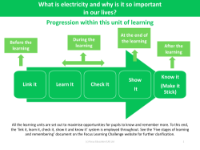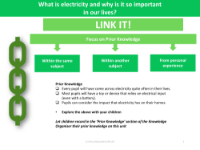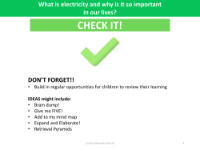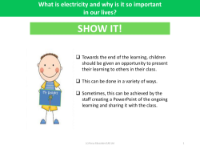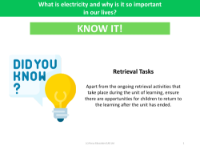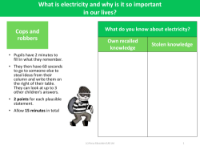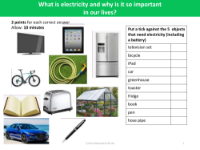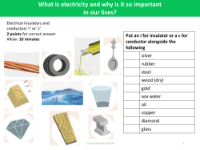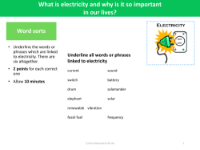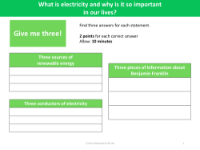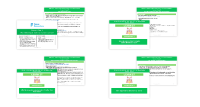Knowledge organiser - Electricity - Year 4
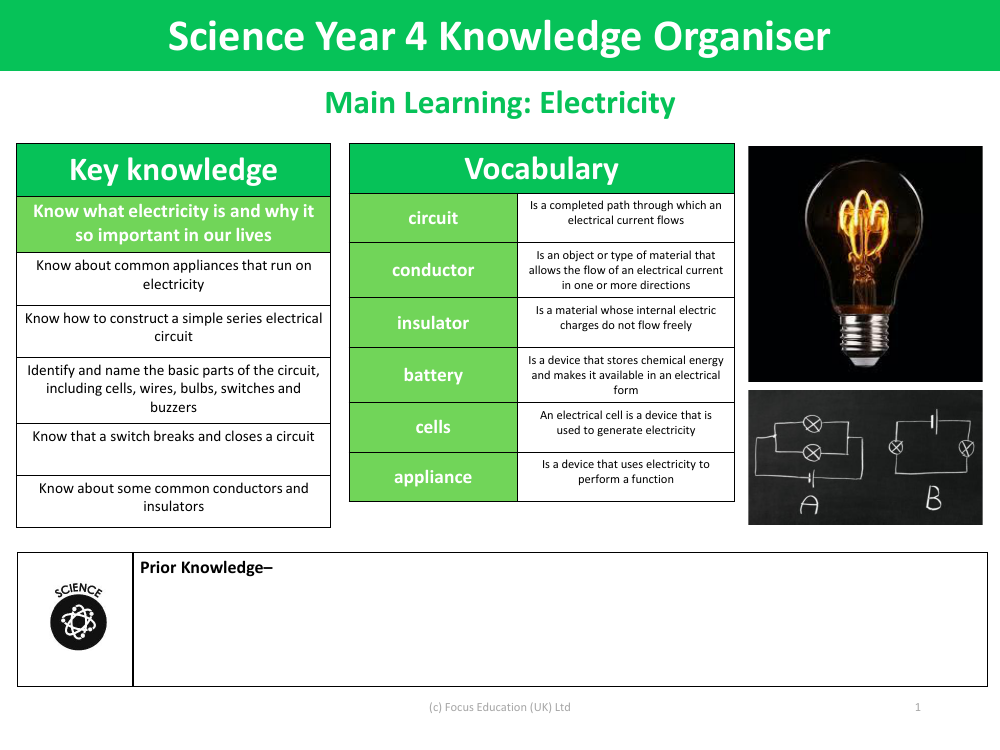
Science Resource Description
The 'Electricity' knowledge organiser for Year 4 students serves as a fundamental guide to understanding the basics of electrical science. It begins by defining a 'circuit' as a complete path that allows the flow of electrical current, a crucial concept for students to grasp. The vocabulary section also explains what a 'conductor' is, describing it as a material or object that permits electrical current to pass through in one or more directions. In contrast, an 'insulator' is defined as a material that does not allow internal electric charges to flow freely, highlighting the difference between materials that do and do not conduct electricity.
Moreover, the organiser clarifies that a 'battery' is a device that stores chemical energy and converts it into electrical energy, while 'cells' are individual units that generate electricity, often making up a battery. An 'appliance', as per the organiser, refers to any device that utilizes electricity to perform its functions. In terms of key knowledge, students are expected to understand what electricity is, recognise its significance in daily life, and be familiar with common electrically powered appliances. They should also be able to construct a simple series circuit and identify its basic components, such as cells, wires, bulbs, switches, and buzzers. Additionally, the organiser emphasises the role of a switch in breaking and closing a circuit and imparts knowledge about common conductors and insulators, rounding off a comprehensive introduction to the topic of electricity for Year 4 students.

